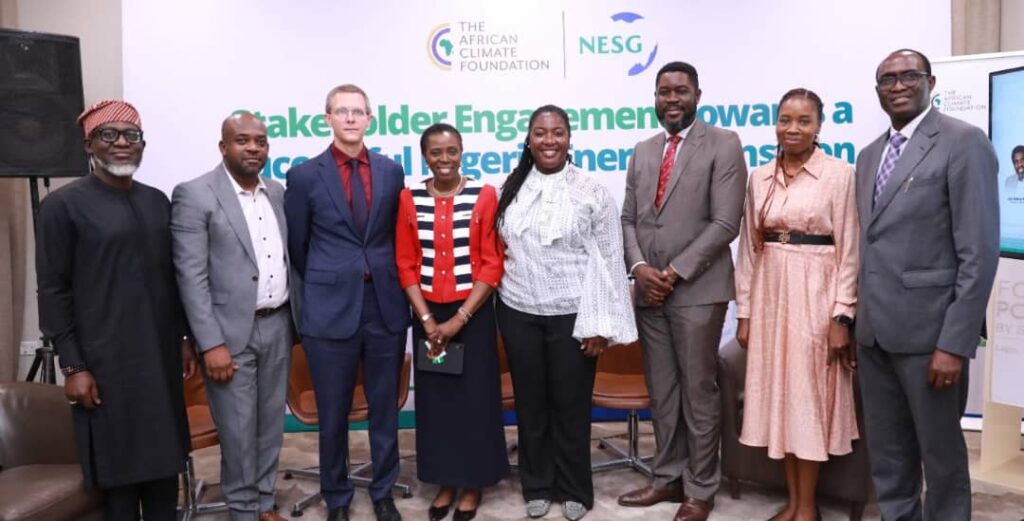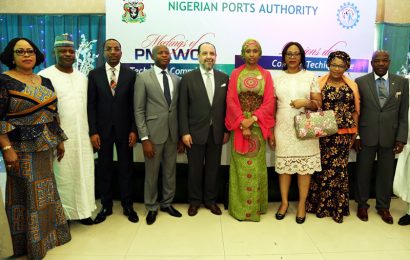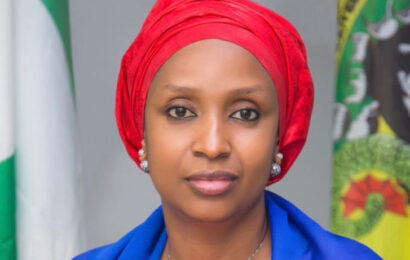

The Nigerian Economic Summit Group (NESG) in partnership with the African Climate Foundation (ACF), held a private sector stakeholder engagement to strengthen public-private collaboration to implement Nigeria’s energy transition plan and develop the carbon market, aiming for socio-economic benefits.
Mrs Dolapo Kukoyi, Thematic Lead, Climate Change and Green Economy of NESG Sustainability Policy Commission, said that the objectives of the project was to share information and create policies that will support energy transition and development.
She said that it would also unlock opportunities in the energy sector and carbon market, increase climate change resilience and economic growth, as well as create private sector jobs and research opportunities.
Kukoyi also noted the importance of strengthening public-private engagement, whilst supporting interventions that drive socio-economic improvement.
Mr Zira Quaghe of the African Climate Foundation, noted that the private sector was crucial for financing the energy transition.
Quaghe said, 80 per cent of the financing plan for energy transition should come from the private sector and the government should drive the policies while ensuring they set targets, pace, for the regulatory and policy framework.’’ He said that his organisation was concerned with climate finance and since 2022, they had entered 12 partnerships to boost energy transition and carbon finance. He reiterated the need for Nigeria to adopt a paradigm for economic transformation as a way of increasing energy access, job creation opportunities and economic diversification. Dr Segun Adaju, the facilitator of the Energy Policy Commission of NESG, said in his presentation on the Nigerian Energy Transition Plan, that Nigeria launched her energy transition plan in 2022 with the aim to lift 100 million Nigerians out of poverty and drive economic growth. According to him, this economic growth was to bring modern energy access to all Nigerians. He said that it would help manage job losses in the oil sector due to the reduced global fossil-fuel even as the country will play a leadership role for Africa by promoting a fair, inclusive, and equitable energy transition on the continent by streamlining existing and new government- related energy transition initiatives. Besides, Adaju stated some of the challenges that the Nigerian Transition project had revealed as,Inadequate and expensive financing, lack of political will and stakeholder coordination, Low Public Awareness and skills, Misaligned public and private sector interests and Lack of comprehensive policies and enabling environment.’’
He proposed that the incentives required from the government to the Private Sector should include favourable Monetary and Fiscal Policies, Improved stakeholder coordination and enabling business environment.
Dr Eugene Itua, the facilitator of the Sustainability Policy Commission of the NESG, in his presentation on the Carbon Market Landscape in Nigeria, emphasized the importance of the carbon market for Nigeria’s energy transition and the need for better policies, capacity building, and inclusivity to make it work for everyone.
He noted that the carbon market was valuable saying, it helps access finance and achieve climate goals (Nationally Determined Contributions) for Nigeria.
He noted the low participation of stakeholders in the carbon market noting that only 35 per cent of stakeholders are involved in projects like clean cooking and solar energy in the voluntary carbon market.
He called on the government to support the projects and encourage participation through clear policies, training, tax breaks, and investment.
Ms Eyono Fatayi-Williams, President of Women in Energy Network, emphasized the importance of building a framework that would benefit the women, saying they are impacted the most.
She stated that capacity building was crucial as it would raise awareness and create an environment for local solutions.




